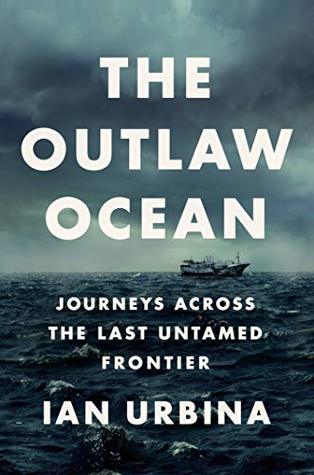More on this book
Community
Kindle Notes & Highlights
by
Ian Urbina
Read between
October 27 - November 10, 2021
the nonprofit maritime environmental group Sea Shepherd, took
bounty hunters,
nautical mile is 15 percent longer than a regular mile.)
He promptly founded Sea Shepherd, branding it as a more radical and more aggressive group than Greenpeace.
The organization’s mantra captured its vigilante spirit: “Takes a pirate to catch a pirate.”
Life on these ships, on the other hand, was so utterly off-line and defined by privacy, quiet, and waiting.
that by boating a mere thirteen miles from shore,
we suddenly find ourselves on the “high seas,” beyond the reach of governments.
Partly my motivation in covering this story was that I needed a break.
This anachronistic law allows some of these companies to elude safety concerns and to hide behind an interpretation of the high seas as inevitably deadly.
The navy’s intrusion into a perfectly legal scientific exploration demonstrated how, in the outlaw ocean, countries and virtually everyone else make up rules as often as they ignore them.
reefs are so teeming with vibrancy and biodiversity that they are the equivalent of the Amazon rain forest in the middle of the Sahara.
The planet is in the midst of one of the most severe instances of coral bleaching in human history. Just a few more decades of emissions would lead all coral reefs to “stop growing and begin dissolving,” wrote a team of scientists in a science journal called Geophysical Research Letters. That would mean the loss of millions of species.
was how completely the framework of a civilized society was abandoned at sea, especially on fishing boats on the South China Sea. Thailand, it seemed to me, was genuinely trying
The ocean may be vast, blue, and deep, but it’s still being used as a junkyard.
After holding him for six days, Vietnam sent Mas Gun back to Indonesia.
Despite a global moratorium on whaling, the Japanese argued that their hunt was part of a scientific program to collect data that they said would prove that there were plenty of whales in the sea and that stocks were not being depleted.
Here again was that central paradox: the ocean is as large as it is small.
Leaving a dozen amazing stories unreported, I swallowed that painful writer’s truism that a book is never finished, just abandoned.
I’d go a step further: the ocean is outlaw not because it is inherently good or bad but because it is a void, like silence is to sound or boredom is to activity.
But the outlaw ocean is real, as it has been for centuries, and until we reckon with that fact, we can forget about ever taming or protecting this frontier.


